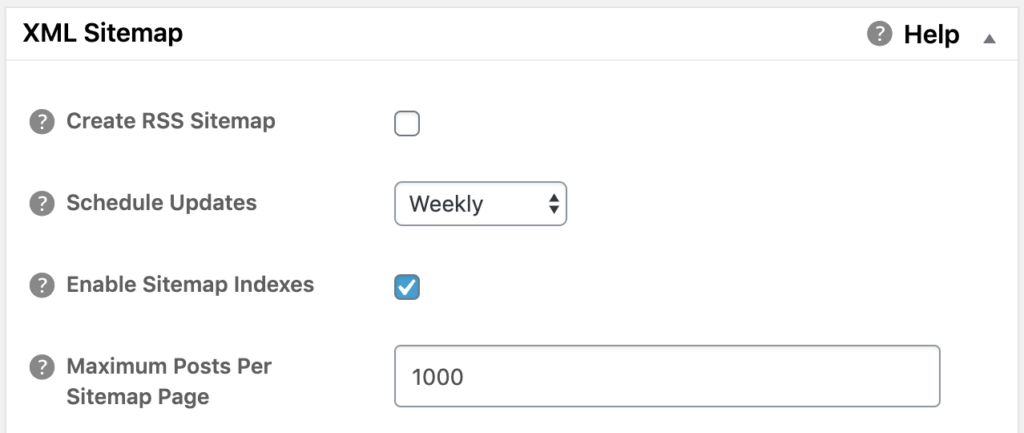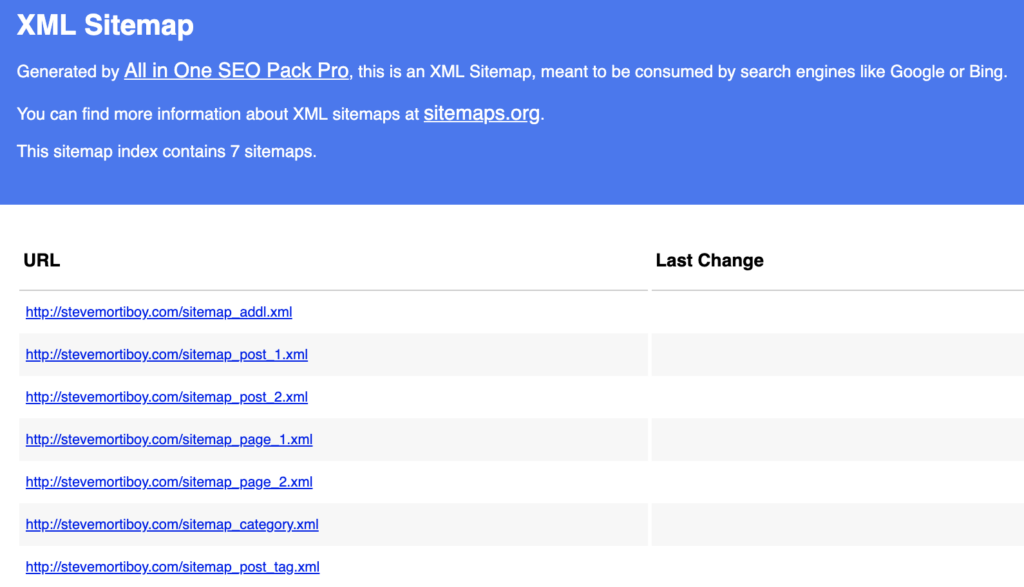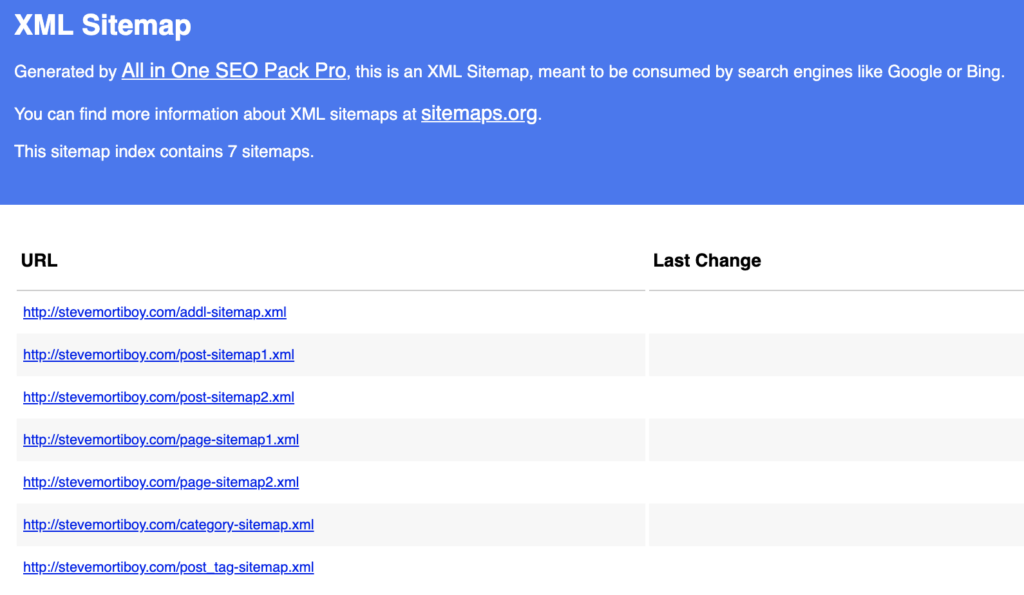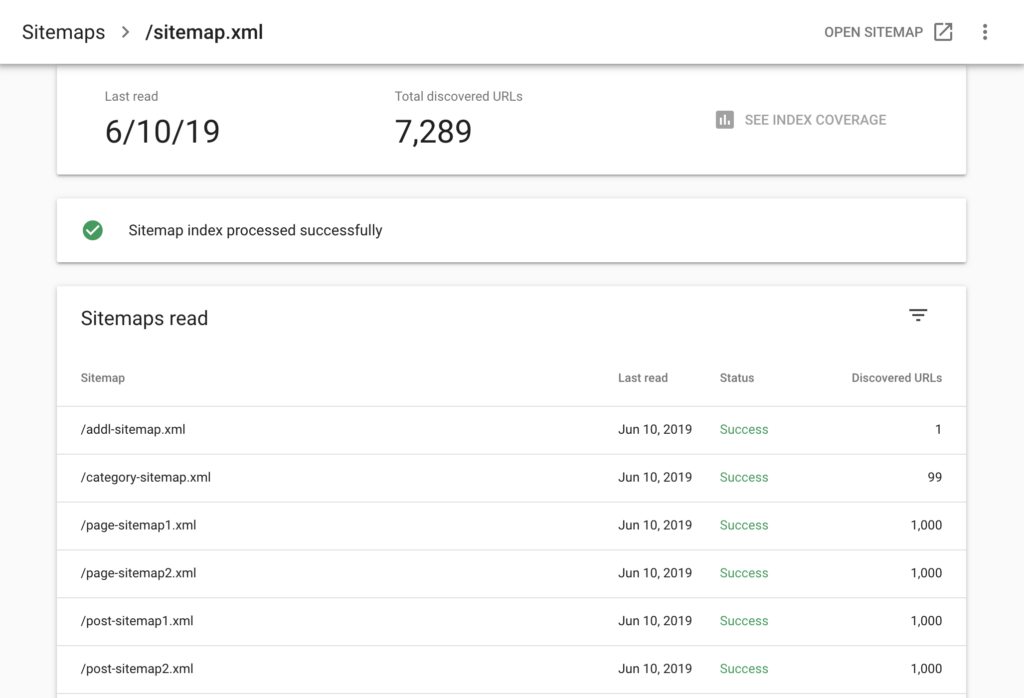Today we released version 3.1 of All in One SEO Pack and All in One SEO Pack Pro which changes the naming convention we use for paginated XML sitemaps when Sitemap Indexes is enabled.

Background
In all versions of All in One SEO Pack prior to v3.1, the naming convention for paginated sitemaps looked like this:
- sitemap_post_1.xml
- sitemap_post_2.xml
- sitemap_page_1.xml
- sitemap_page_2.xml
- …

However, in the past couple of days we received reports of some paginated sitemaps no longer being listed under Sitemaps read in the new Google Search Console reports.
We immediately opened an issue for this and investigated to see if we could reproduce this problem. We were able to confirm that Google sometimes has problems listing paginated sitemaps with “_post_” in the filename. This only affects sites with the “Enable Sitemap Indexes” option enabled in the XML Sitemap settings and with pagination for the post sitemap pages, meaning the site has more than 1000-10,000 posts. Even then it only affected some sites.
It is also important to note that these missing sitemap index pages will not negatively affect your SEO. ie Google doesn't drop a URL in the rankings if it's no longer in a sitemap.
New Naming Convention
From our investigation, it appeared that the root cause of the problem was a possible recent (and likely unintentional) change by Google to the naming convention that they support for paginated sitemaps. We contacted Google to get confirmation of this and will update this post with their response.
However, through extensive testing across many sites, we were able to determine that changing the naming convention to the examples shown below enabled Google to accept all paginated sitemaps in a sitemap index:
- post-sitemap1.xml
- post-sitemap2.xml
- page-sitemap1.xml
- page-sitemap2.xml
- …

Impact to your Site
If you don't use Sitemap Indexes then this does not affect your site. If you do use Sitemap Indexes but do not have multiple pages of a sitemap, i.e. sitemap_post_1, sitemap_post_2, etc. then this does not affect your site either. However, if you use Sitemap Indexes and you have pagination set so that you have multiple pages, then this change does affect you.
It is important to note that this does not, nor never did, affect the indexing of content on sites using All in One SEO Pack. The XML Sitemap is only one way in which modern search engines crawl and index content. Also, Google and other search engines were not having any problems reaching the main sitemap index, which in All in One SEO Pack has a standard name of sitemap.xml. They could reach the sitemap index and could therefore crawl each of the sitemaps listed in the index. To our knowledge, Google's ability to crawl paginated sitemaps in an index was never affected and this was proved by our extensive testing.
The only impact we saw was in Google Search Console where they list the Submitted read in the Sitemap Report. Instead of Google listing all the sitemaps, Google would only list some.
Recommended Action Users Should Take
After upgrading to v3.1, users may wish to remove and resubmit their main sitemap index to Google (i.e. sitemap.xml). This action is not required as Google has stated that they will pick up any changes to your XML Sitemap the next time they crawl it. This includes changes to the names of sitemaps listed in the index.
Users are advised to monitor their Sitemaps Report in Google Search Console for any errors. Although we don't anticipate any, please do report any problems to us via our contact form. Please select “Plugin support” as the Contact Reason and, for users who don't have a license key, enter the URL of this post in the “Your license code” field.

Disclosure: Our content is reader-supported. This means if you click on some of our links, then we may earn a commission. We only recommend products that we believe will add value to our readers.

Google is strong enough lately to reach most of your own content but maintaining an organized sitemap makes it much easier and faster for search engines to index all your content – and tell them when it changes – so it’s a step worth taking .
Thanks for the update, Steve!
It’s always good to have well created sitemap. Your plugin is great.
I have added the .gz extension at the end of the filename to resolve this issue.
Thanks for the information, …Steve
Saya telah mencobanya, tapi tetap saja error, apakah perlu beberapa hari untuk menunggu peta situs bisa diterima Google?
It might take a while. Some users have also reported that adding a slash (/) at the end resolved the issue for them.
Your plugin is great Thanks
hi there, i’m using the plugin and is great .. i have a question in my sitemap i have 4 url that i need to delete .. but now with automatic insertion page i cant .. where i can insert the url ?
ideas?
Hi Maximiliano,
Thanks for your kind feedback. We’re happy you’re enjoying our plugin. You can exclude those URLs by going to Sitemaps > General > Advanced and using the Exclude Posts / Pages setting. Please see the screenshot below. If you need more help, you’re welcome to open a support ticket and one of our team members will be happy to help you: https://aioseo.com/contact